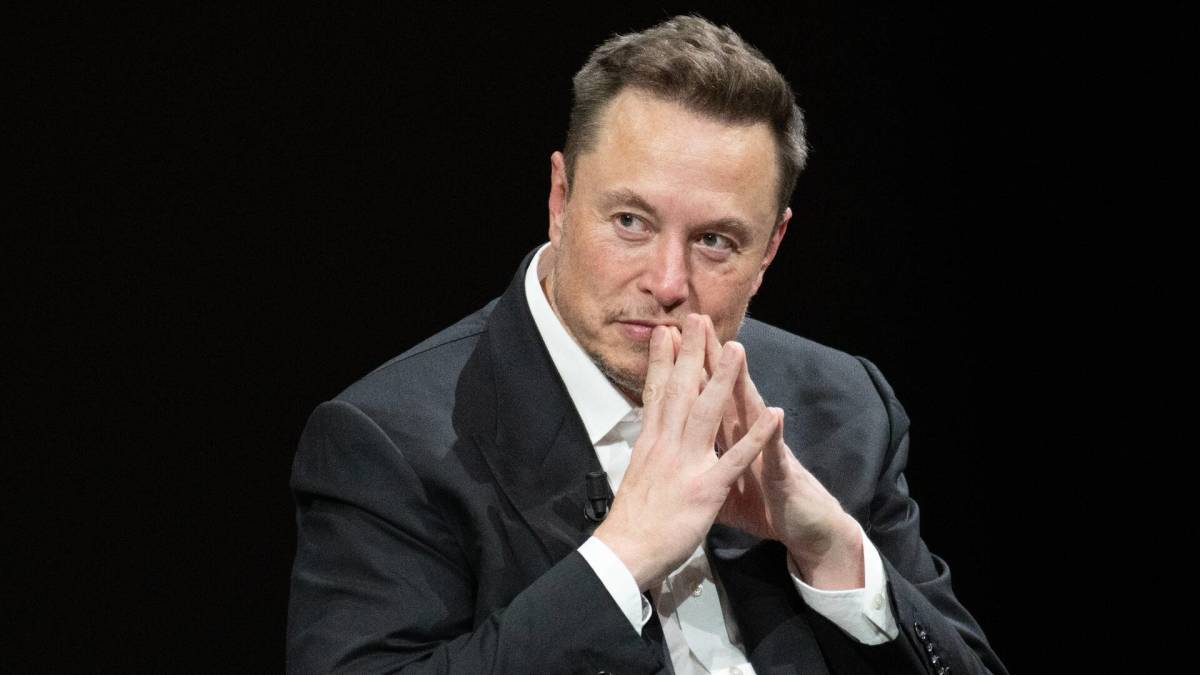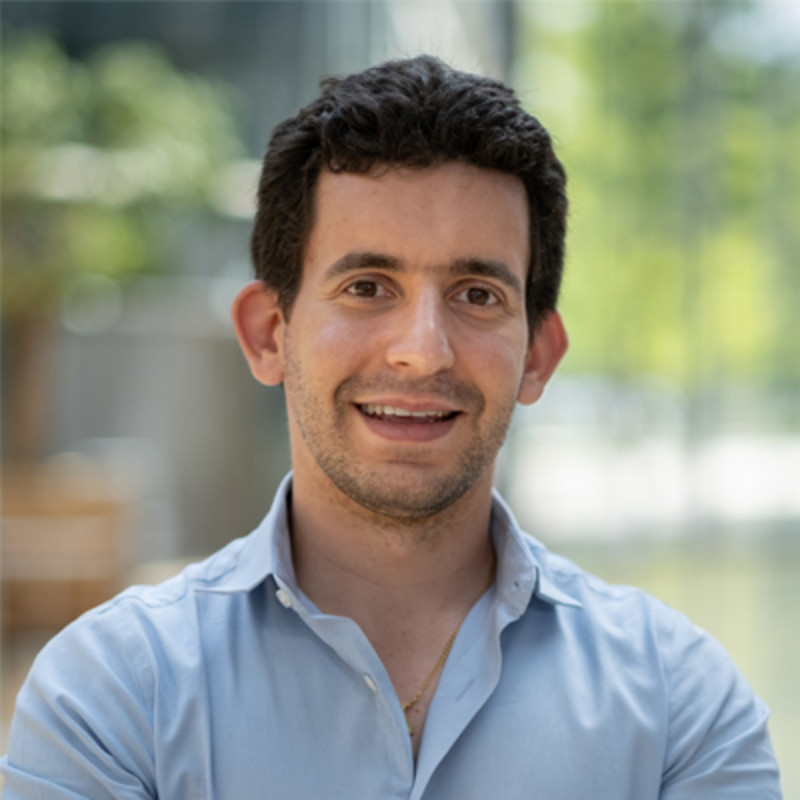
Within Elon Musk's suite of corporations sits Neuralink, which aims to create a brain-computer interface through surgically implanted brain chips.
Though evidence, details and timelines remain scarce, Musk has teased several iterative evolutions of Neuralink's brain-chip technology, one of which would be designed to restore lost eyesight.
Musk — who is not a neuroscientist — has also claimed, without evidence, that the device could solve such neurological disorders as autism, schizophrenia and memory loss. Musk in 2020 likened the device to a "Fitbit in your skull."
Musk has also said that future Neuralink chips could enable people to experience alternate — past, historical or purely fictional — realities.
But another company is pursuing specifically the medical side of brain implants and presents Musk and Neuralink with a potentially strong rival.
Musk's neural aspirations a mixed approach
Anna Wexler, an assistant professor of medical ethics and health policy at Penn, in June called Musk's tendency to hype his products unusual in the medical sector.
On one hand, the dissonance between the company's work on a medical device and its CEO's public aspirations toward humans interfacing with machines — and artificial intelligence — is a good thing, according to Wexler. It could accelerate innovation.
"On the other hand, there’s still so little known about the brain that getting people’s hopes up about what’s possible in the near term may be misleading and may lead to skepticism around neurotech," she said.
Hype aside, Neuralink is currently working on restoring autonomy to people with quadriplegia, though its mission does include a desire to "unlock human potential tomorrow."
Related: Elon Musk makes an enormous new promise for one of his more unusual ventures
Neuralink, which achieved a $5 billion valuation in June, in May received U.S. Food and Drug Administration approval to begin human trials of its N1 chip.
The company is currently recruiting patients with quadriplegia and with amyotrophic lateral sclerosis, known as ALS and Lou Gehrig's Disease. The goal of this initial stage of human trials is to test whether Neuralink's N1 chip can enable these patients to control a computer with their minds.
Still, the company has faced scrutiny over its alleged practices; the Physicians Committee for Responsible Medicine has claimed that based on publicly available records, Neuralink has euthanized at least a dozen previously healthy test monkeys due to issues with the company's brain chips.
The nonprofit group, focused on ethical scientific research, in September asked the U.S. Securities and Exchange Commission to investigate Musk and Neuralink after Musk claimed on X that "no monkey has died as a result of a Neuralink implant."
"Because the invasiveness of Neuralink’s device poses serious health risks to patients, Musk is misleading investors about the safety and marketability of the company’s device," the physicians' committee said.
The U.S. Department of Agriculture, concluding a lengthy investigation in July, said it had found no evidence of animal-welfare violations by Neuralink.
Six of Neuralink's eight founding scientists have departed the company since its founding. Former employees, speaking with STAT News in 2020, described a hectic culture that demanded more in the way of aggressive speed than targeted scientific progress.
Neuralink did not respond to a detailed request for comment on this piece.
Related: The environmental dichotomy of Tesla CEO Elon Musk
A different approach to brain-chip tech
Also developing brain-chip technology is the Swiss biotech company Neurosoft. And its founder and chief executive, Dr. Nicolas Vachicouras, questions Neuralink's approach.
Brain chips, Vachicouras told TheStreet in an interview, are first and foremost medical devices. "It's a different world than other industries," he said.
Musk's idea to use brain chips eventually as a means of enhancing otherwise healthy human beings is one that Vachicouras doesn't see happening anytime soon. Over the next 10 to 20 years at least, he said, the field of brain chips will remain focused on solving medical problems.
A key reason for this is the cost-benefit analysis of a device that is inherently highly risky.
"It's easy to outweigh the risk when you have a patient who is completely paralyzed; they have nothing else to lose," he said. "But if you have someone who is completely healthy, then the benefit component starts to decrease, and then the risk is still very high, and therefore the balance is not there anymore."
But beyond Neurosoft's more focused attitude, the firm is approaching the question of brain implants differently than Neuralink is.
Neuralink's implant is penetrative; the device's electrodes are implanted within the brain. The advantage of this approach, according to Dr. Gregory Cogan, assistant professor of neurology at Duke University, is that the electrodes are closer to the brain's neurons.
The disadvantage, however, is twofold, he said. The insertion of such a chip damages brain tissue, and such chips cover small areas of the brain, making them useful only for very targeted purposes.
Neurosoft is developing a flexible implant designed to cover a larger portion of the brain less invasively: The implant sits on top of the brain rather than being inserted into the tissue.
Such electrode arrays, according to Cogan, enable access to larger areas of the brain with a higher electrode density, providing more information and incurring less damage. These devices also last longer than chips because they are more stable, he said.
Cogan is similarly developing a flexible brain sensor, which he and other Duke scientists successfully tested in November.
Related: AI trends: What experts, execs think artificial intelligence will look like in 2024
Neurosoft: a different answer
The idea for Neurosoft was born years ago, during Vachicouras's time as a master's student at Harvard Medical School. The idea, he said, was to have thinner and softer electronic materials that better conformed to the surface of the brain.
"The brain is soft and implants that are currently used on the market are very rigid," he said. "And so you had this big mechanical mismatch between very rigid and stiff devices versus a very soft tissue."
He founded Neurosoft in 2018. The company in 2022 was awarded $3 million in funding from the European Innovation Council Accelerator Grant.

Courtesy of Neurosoft
In August Neurosoft completed the inaugural testing of its supersoft electrodes on three patients who were undergoing brain surgery and volunteered to participate in a study conducted under the guidance of the neurosurgeon Nitin Tandon at Memorial Hermann in Houston.
During the trial the electrodes successfully provided detailed recordings of each patient's brain activity, a milestone that Vachicouras called a "great derisking step for the company." Once the recordings were provided, the electrodes were removed, a step that occurs before the conclusion of the surgery.
Related: Human creativity persists in the era of generative AI
Neurosoft: brain implants to address tinnitus
At this early stage Neurosoft has two main medical goals. One is an attempt to address tinnitus, a condition that causes the perception of a ringing in the ears. Tinnitus has no cure.
Scientists have recently begun looking at tinnitus as a brain problem rather than an ear problem, presenting Neurosoft with an opportunity to address it, according to Vachicouras.
In some parts of the brain near the auditory cortex, which processes sound, "neurons are hyperactive and create this sensation that you have this buzzing in your ears even though there's no external sources of sound," he said.
"Our idea in a nutshell is to access this location and to stimulate it the same way a pacemaker would stimulate the heart." The CEO adds that the idea is to reduce the hyperactivity of the neurons to remove the sensation.
MRI testing identified one of these target locations in one of the folds of the brain, making it difficult to access with traditional implants. But Neurosoft's thin, flexible electrode array can be folded to access that location without damaging the brain, creating the potential for the company to address the currently incurable condition, he said.
Cogan called this approach "extremely interesting and probable."
The company's other goal is to help doctors localize where in an epileptic patient's brain the seizures are stemming from.
This is achieved through what's called the electrode array's readability function. When a surgeon wants to identify and remove a portion of the brain that is responsible for seizures, the electrode can exactly localize the area from which the seizures emanate.
This reading of brain activity could have a litany of powerful uses beyond localizing seizures. It could, for example, enable a patient to operate a prosthetic limb with their mind, Vachicouras said.
In the case of a neurospeech prosthetic, Cogan said, "What you're doing is actually reading the signals that the brain would send the articulators in your mouth: [your] tongue and your lips and that kind of thing. And it reads the signals that your motor cortex would be sending to the muscles, but of course, the muscles don't work."
Related: Meta and IBM team up against dominant Big Tech players
Neurosoft: The path to market
Vachicouras said that Neurosoft's epilepsy-focused device is very close to market; because the device is, by its nature, a temporary one, there are fewer roadblocks to market access.
Neurosoft plans to submit the device for FDA approval this year. Vachicouras said he expected to be able to sell the devices by January 2025.
The company's work in tinnitus is still a few years out, owing largely to the fact that such an implant would be permanent. He said his goal is to begin human trials with that device within the next 12 to 18 months.
Neurosoft is additionally collaborating with a private Swiss neurotechnology foundation to apply its electrodes in patients who have lost their ability to use their limbs. The aim would be to decode via the brain which muscles a patient wants to use. The goal is to enable these people to operate robotic exoskeletons.
The company will be conducting trials of this technology in early 2024.
Contact Ian with tips via email, ian.krietzberg@thearenagroup.net, or Signal 732-804-1223.
Related: The ethics of artificial intelligence: A path toward responsible AI
Get exclusive access to portfolio managers’ stock picks and proven investing strategies with Real Money Pro. Get started now.







